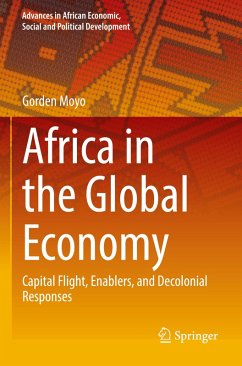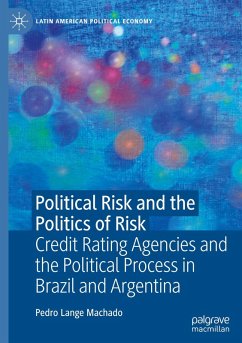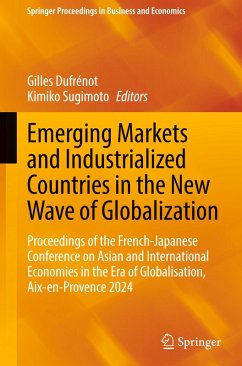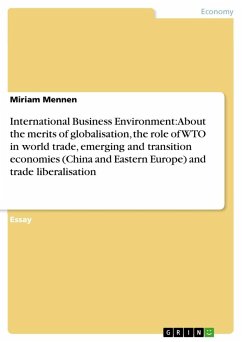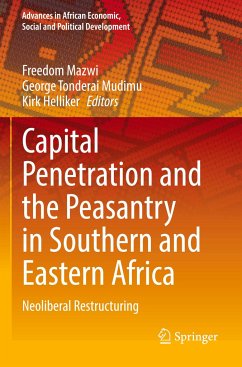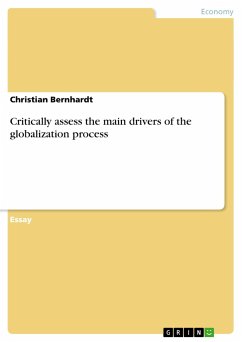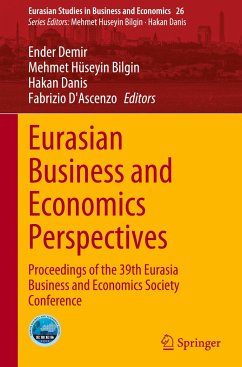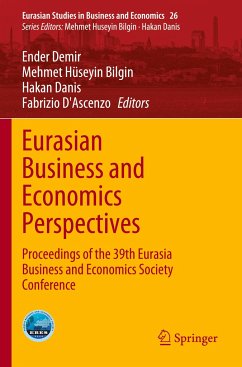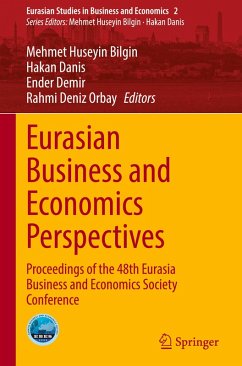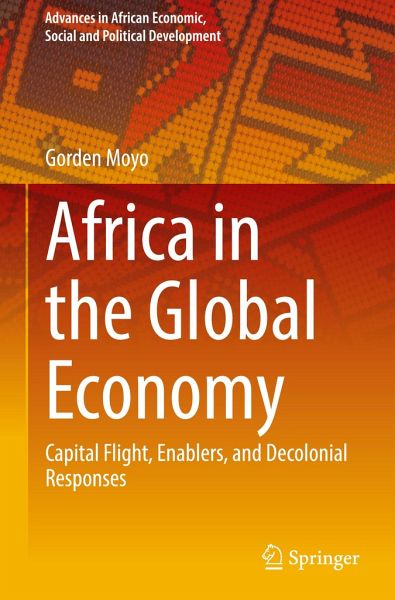
Africa in the Global Economy
Capital Flight, Enablers, and Decolonial Responses
Versandkostenfrei!
Versandfertig in 6-10 Tagen
91,99 €
inkl. MwSt.
Weitere Ausgaben:

PAYBACK Punkte
46 °P sammeln!
This book discusses the role played by powerful global institutions such as the IMF, the World Bank, the World Trade Organisation, multinational corporations, and the international credit rating agencies in keeping Africa marginalised in the world economy. The book focuses on the intrusive roles of these institutions as enablers and beneficiaries of capital outflows and financial subordination in Africa. Diverging from the official narrative that touts China and the other emerging economies as global reformers that are poised to partner Africa in its fight against financial subjugation, the bo...
This book discusses the role played by powerful global institutions such as the IMF, the World Bank, the World Trade Organisation, multinational corporations, and the international credit rating agencies in keeping Africa marginalised in the world economy. The book focuses on the intrusive roles of these institutions as enablers and beneficiaries of capital outflows and financial subordination in Africa. Diverging from the official narrative that touts China and the other emerging economies as global reformers that are poised to partner Africa in its fight against financial subjugation, the book instead argues that, like the Western powers, the emerging economies are benefiting prodigiously from a rigged global financial system that keeps Africa as a net creditor to the rest of the world. The book draws its theoretical framework from the repressed heterodox theories including dependency, core-periphery, world systems and Marxist theories as well as the decolonial approach. Itconcludes with a call for a decolonial African agency that should champion an epistemic rebellion against the neo-liberal and neo-classic economic traditions that have been historically deployed to justify Africa's subordinated position in the global economic governance.
This book comes at moment in time when Africa is ready to become a Rule Maker not a Rule Taker. The analysis Dr. Moyo presents having been in the front line of public policy and international negotiations demonstrate the need for Africa to re-write the rules to foster our own Transformation.
Jason Rosario Braganza, Executive Director, African Forum and Network on Debt and Development (AFRODAD)
This book comes at moment in time when Africa is ready to become a Rule Maker not a Rule Taker. The analysis Dr. Moyo presents having been in the front line of public policy and international negotiations demonstrate the need for Africa to re-write the rules to foster our own Transformation.
Jason Rosario Braganza, Executive Director, African Forum and Network on Debt and Development (AFRODAD)





